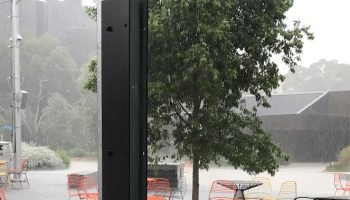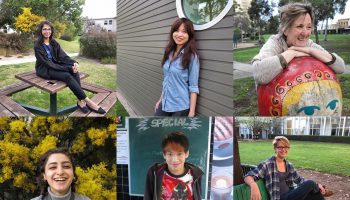I dare you to tell me racism doesn’t exist in modern Australia. Not to start an argument with you, but rather so we can initiate a conversation about one of the most poignant and underestimated plagues upon our community.
Racism is systemic in its oppression. Western standards of beauty, competence and superiority are perpetuated at every conceivable level of society. Go on and tell me that I am not judged based on the colour of my skin when society tells me, from the moment I step foot in my very first classroom as a young child of Australia, that I should hate the pigments in my skin cells and lament in my inevitable social isolation. One of my earliest memories in school was being told by a ‘“friend’” that he was glad he didn’t have “brown skin and black hair” like me, that I should just know by now that Indians are not generally as good looking as white people. And what really made me sad was seeing other kids forced on a day to day basis to defend their beliefs, defend their right to wear a headdress, defend their religion against a tirade of intrusive questions. An eight year-old shouldn’t have to defend the grand belief systems of ancient India or the ideologies of their family when all they want is to be accepted by their classmates.
When I say society is racist, I refer to its norms and values that lie corrupt and inherent within our subconscious. That is not to say that every individual is a racist. That is preposterous. Rather, these norms – beauty standards and misconceptions about cultures and ideologies – lie within our day to day notions of ‘normality’. Without realising, we propagate micro aggressions, racist slurs, and oppressive language without even knowing it. Where are you from? No, where are you actually from? As if to suggest that the subject of the question is somehow ‘other’, a foreigner… not Australian. When I look at you, I don’t see colour. We are all part of the human race. This merely articulates a subconscious assimilation to the dominant culture, a denial of each individual as a cultural being, dismissing generations of colour, music, festivities, religions, beliefs ideologies and suffering.
But even on a more macro level, the Pauline Hanson show’s re-run, along with the global increasing of xenophobic fear mongering and neo-conservative political pundits reflect a society that feels like it’s leaving people of colour behind. One Nation’s four senate seats in the most recent election represents not only a failure by people of colour to advocate for sanity and racial equality for all publicly, but also a failure by political leaders who inhabit privileged positions of power to starkly stand up against this political regression. Something must be done to combat these attacks on our community and protect the sanctity of the civil society we all want to live and breathe in. All of us.
I’m not here to make excuses. We are here to make change. The creation of a People of Colour Collective as an autonomous department within the Monash student union is a fantastic way of giving a voice back to this community. The department would constitute a mandate to develop cultural activities on campus, fight against any racism present on campus and increase political representation of a community that is severely unrepresented in the broader political movement. The only way to finalise the People of Colour department will be with a YES vote in a referendum in the upcoming student elections. Come out and vote, support a positive historical step at Monash University! I cannot stress this enough. A referendum is the only way a new department can be set up at Monash. There is a lot of interest, however we just need to prove it to the university. We demand to see this change. Vote YES in the referendum.
Now I know what some of you might be thinking. Isn’t this just another form of alienation? Aren’t you just excluding a large majority of the university populace? The simple answer is no. The nature of micro and macro aggressions drive people of colour to isolation. When people of colour begin changing their names when applying for work to avoid discrimination and appear a part of the dominant western community, we know there is a fundamental problem. It is about elevating an oppressed group, providing a safe platform so that these issues can be discussed freely, without fear. It is not about bringing other groups down. There is a systemic, institutionalised imbalance of power that we face every day of our lives and positive steps like this merely mobilise individuals, incentivise institutions such as the MSA and educate the general populace about the reality of the world and the hopeful future we can h


